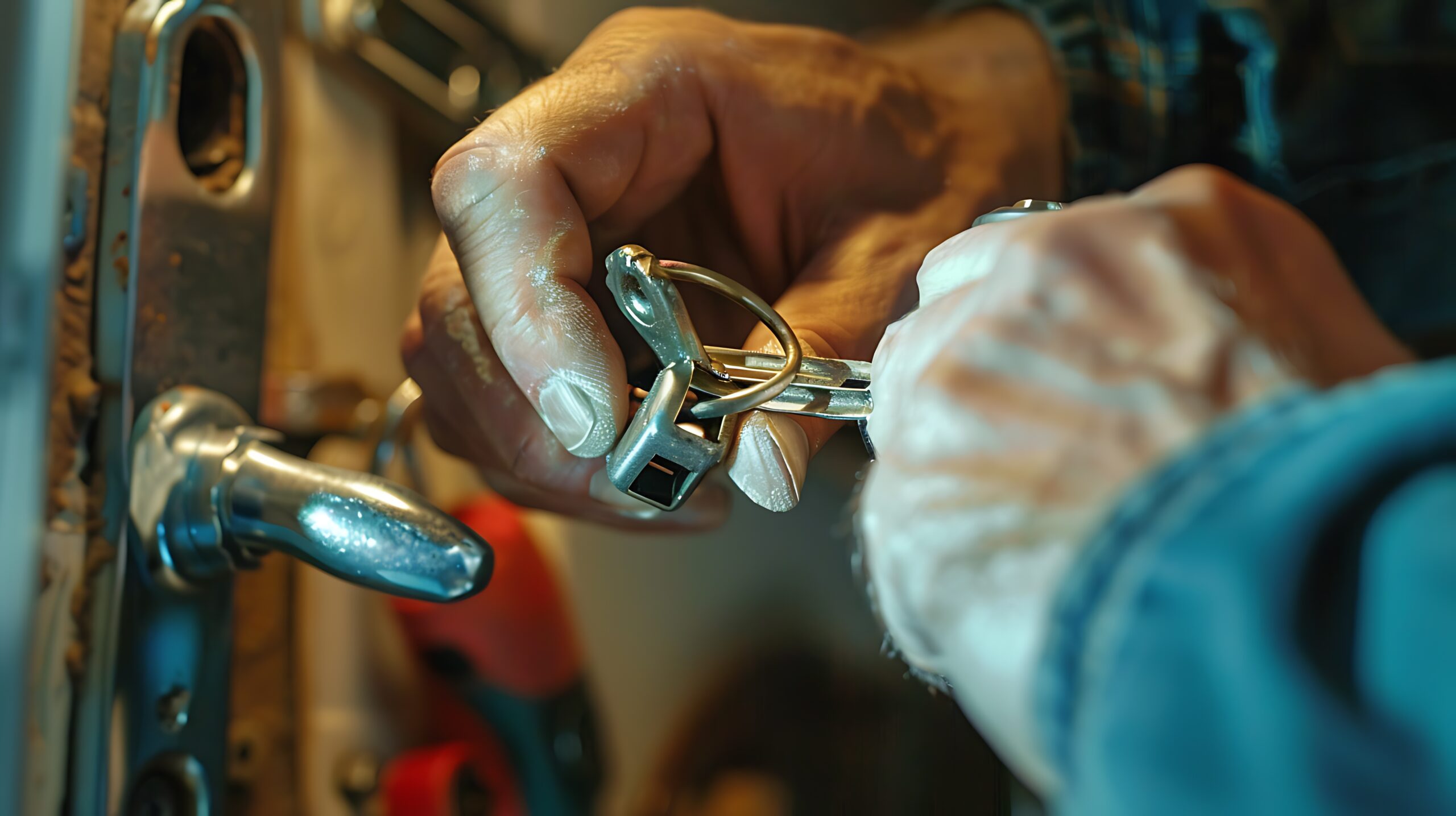Losing a key is frustrating. Whether it’s for your car, home, or office, not having a spare on hand can make you feel stuck. But here’s some good news: a professional locksmith can often make a new key for you, even if you’ve lost the original. But how exactly does that work? Is it reliable? And what does the process look like?
Let’s break down what you need to know about getting a key made without the original, the methods locksmiths use, and when this option is possible.
When might you need a key made without the original?
There are a few common scenarios where someone might need a key made from scratch:
- You’ve lost the last copy of your house or car key
- You’ve moved into a property and want to create a new set
- A key broke off inside a lock, and no spare is available
- You have an old lock, but no idea where the key went
In these situations, calling a locksmith is often the most practical and cost-effective solution.
So, can a locksmith make a key without the original?
Yes. A skilled locksmith can often create a new key even without having the original to duplicate. While it might sound like magic, it’s actually a combination of specialised tools, experience, and a deep understanding of lock mechanisms.
The ability to do this depends on several factors, including:
- The type of lock or key
- The level of wear or damage
- Whether there’s access to the lock itself
- Availability of key codes (especially for vehicles)
Methods locksmiths use to make a key without the original
1. Key impressioning
Key impressioning is an old-school, highly skilled method. It involves inserting a blank key into the lock and manually creating marks that indicate where the cuts need to be made. This method doesn’t require disassembling the lock.
How it works:
- The locksmith inserts a blank into the lock
- Turns and wiggles the blank to create tiny marks from the lock’s pins or wafers
- Uses those marks to file down the blank precisely
- Repeats the process until the key turns the lock smoothly
This method works best for standard pin tumbler locks like house or office doors.
2. Disassembling the lock
If impressioning isn’t an option, the locksmith may choose to take the lock apart and study the internal components to create a key.
Why it works: Inside the lock are pins or wafers of specific heights. Once the locksmith knows their layout and depth, they can cut a key that fits.
This method is common for:
- Deadbolts
- Padlocks
- Filing cabinets
- Older or worn locks
It’s slightly more time-consuming but accurate.
3. Using key codes
For certain locks, especially car locks, mailboxes, and filing cabinets, manufacturers assign key codes. If you have documentation, or the locksmith can locate the code (from the lock or VIN), they can cut a new key using this information.
Where to find key codes:
- Owner’s manual or key tag (for vehicles)
- Lock cylinder (sometimes engraved)
- Manufacturer’s database (available to licensed locksmiths)
Key code cutting is a common technique for cars, particularly when dealing with transponder keys or smart keys.
4. Using software or decoding tools
Many modern locksmiths use advanced decoding tools or software to recreate keys. These tools read the lock’s internal mechanism or use algorithms to determine the cuts needed.
Common for:
- High-security locks
- Automotive keys
- Smart lock systems
This method may require specialised equipment and is usually faster when compared to manual impressioning.
Can a locksmith make a car key without the original?
Yes, but it depends on the type of car key:
- Traditional car keys (no chip): Easy to reproduce using impressioning or key code cutting.
- Transponder keys: The locksmith must program a new chip to match your car’s immobiliser.
- Remote/fob keys: These require both cutting and electronic programming.
- Push-start/proximity keys: These can be made, but you’ll need a locksmith with dealership-level tools.
Depending on your vehicle’s make and model, the process can take anywhere from 20 minutes to a few hours.
What should you have ready when calling a locksmith?
To speed up the process and confirm your ownership, try to have:
- A photo ID
- Proof of address (if it’s a house or office)
- Vehicle registration or title (for car keys)
- Lock brand or model (if available)
- Any paperwork with a key code
These details help the locksmith verify you’re the rightful owner and can streamline key creation.
Is it expensive to make a key without the original?
The price varies based on:
- Type of key (house, car, safe, etc.)
- Complexity (standard vs high-security or electronic keys)
- Tools required (manual or electronic)
- Emergency or after-hours service
Estimated price range:
- House key: $50–$150
- Car key (basic): $90–$180
- Transponder key: $150–$300
- Smart key/fob: $250–$500+
Can all locksmiths do this?
Not every locksmith offers key creation without an original. This requires a mix of technical skill, specialised tools, and hands-on experience.
When hiring a locksmith for this service:
✔️ Look for mobile locksmiths with automotive or safe experience
✔️ Check their credentials or license (if required in your area)
✔️ Read reviews or ask for recommendations
✔️ Make sure they offer the specific service you need (e.g., transponder programming)
Risks and limitations While Key-making without an original
While it’s a reliable service, there are a few things to be aware of:
- Worn locks can produce inaccurate impressions
- Very old or rare locks may have no parts available
- Some car models require dealership-only tools
- Duplicate keys might not work perfectly the first time (especially with high wear locks)
But in most cases, a professional locksmith can work around these issues.
Should you rekey or replace instead?
If your key was stolen or lost and you’re concerned about security, rekeying the lock may be a safer option. This changes the internal configuration of the lock so old keys won’t work anymore.
When to rekey:
- After a break-in
- If the lost key had identifying info
- You just moved in
When to replace:
- The lock is damaged or outdated
- You want to upgrade to a digital or smart lock
A good locksmith can advise you on the best route.
Conclusion
So, can a locksmith make a key without the original? Absolutely. With the right knowledge, tools, and access to the lock, a professional can create a working key even if your original is long gone. Whether it’s your house, office, or car, there’s no need to panic when your key disappears.
And if you’re in a pinch and need expert help, GS Locksmith is here to assist, equipped with the skills and tools to get you back in control quickly and safely.

